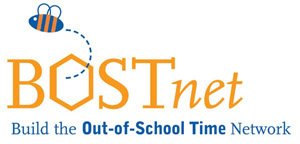
Recently there has been a great deal of talk about the economy. It is on everyone's minds as daily we hear a constant drumbeat of bad news. More jobs lost, the "market" down, this or that company looking for a bailout.
The Out-of-School Time field has not been immune. Many programs are worried about summer enrollment, private and government dollars, and the use of a constant or diminished number of resources becoming ever more contested by programs and organizations - many of which are currently burning through 2009 reserves prior to the 2010 fiscal year meltdown. This is a time when the cohesion of the field is being challenged as many program managers and directors are in open competition with their peers. Applications to every source of funding, no matter how small, are up. While this may lead to many fractures - often between people who have known one another or worked together for years - these economic conditions make it more important for the Out-of-School Time field to come together and settle on an identity and key areas of quality. Managers and organization leaders must also be frank about financing, funding, and how supporting each other can help sustain yourself.
Over the past several years there have been various large system-building or capacity-building initiatives. These initiatives have taken much energy and often funding away from the work at the ground. Considering where the economy is, large-scale system-building initiatives may have to be reviewed for what is useful - and what of these endeavors are boondoggles that can no longer be supported with private or public funds. Leaders in the field may have to reflect on what their practices and expectations have been and use this period to bring these in to line with our current realities. What are we asking of the direct service staff? What training are we providing them? What is the actual scope of the work and can we continue to measure Out-of-School program quality against individual child in-school performance?
Programs may need to openly discuss what it means to share resources. We hear a great deal about "share resources" but what does that mean?
Share staff (some programs have been doing this)?
Share costs for materials?
Share space (many programs have be doing this)?
Share program participants?
Write grants together?
Merge management and close some organizations?
The last item is perhaps the most sticky of the points. Sharing of craft sticks or direct-service staff always is more popular than closing down upper management and even consolidating the infrastructure of organizations that provide similar services. It begs the sticky question of who is taking over whom?
The market conditions have not been favorable even in times of plenty (or at least the past eight years by comparison to today) to smaller programs or individual actions by managers to adapt their program in the face of NCLB-style initiatives and educational and enrichment misadventures. Certainly there have been many more barriers to entry placed in the way by creeping and pervasive "professionalization" that has provided no back end infrastructure of consistent funding, agreed upon standards of quality, or a sold commitment to either placing Out-of-School Time within the area of Youth Development or adjunct to academic remediation. Gone are the days when an interested community member could launch a needed program for idle children around her. With start-up times, organizational bureaucracy and funding restrictions such as restricted or project-driven funds, many of these elementary-age children may be adults before the program gets off the ground. Can a field that has slowed down in innovation respond to economic challenges in a timely manner?
Much of our current situation did not arise all at once but came from years of unsuitable development and unsustainable investments. Despite the many conferences and committees, the field appears at a social level (colleague to colleague) to be more fractured than united. This is indeed a larger symptom of the problems in how funding was deployed. The amount of unrestricted funding has diminished or vanished, inspiring many programs to higher levels of activities often outside of their traditional keen. The inconsistent "investment" by private and public entities and individuals that created programs at whim and abandoned them inexplicably.
What may be needed now is for more members of the field to come together and a renewal in that spirit that launched the Out-of-School Time field in the first place. Individuals inspired by the idea that children and youth can benefit from an expanded number of developmental settings and that those settings are intentional and provide the context for the learning that occurs in formal settings and does not extend nor replace that formal system. Out-of-School Time is more than challenged by current market forces and that once over, business can resume as usual.
The field of Out-of-School Time faces a critical juncture. We must look at the old ways of thinking and shed them. We must brush aside our differences in philosophy and approach and look to the fundamentals of the work and then advocate methodically for consistent funding for the kind of work this field was meant for, not the sort of work we are often given or demanded of us. Increasingly on the ground there is a frustration in the way things are done. Change happens only when we are the first ones to make it in ourselves. Time will tell what direction each one of us chooses.




No comments:
Post a Comment